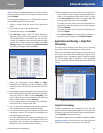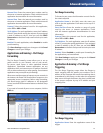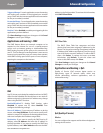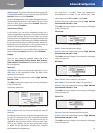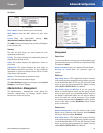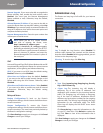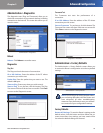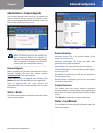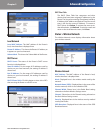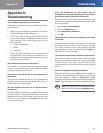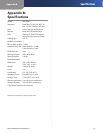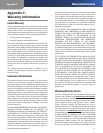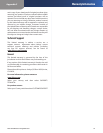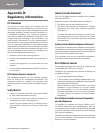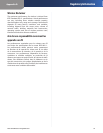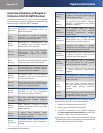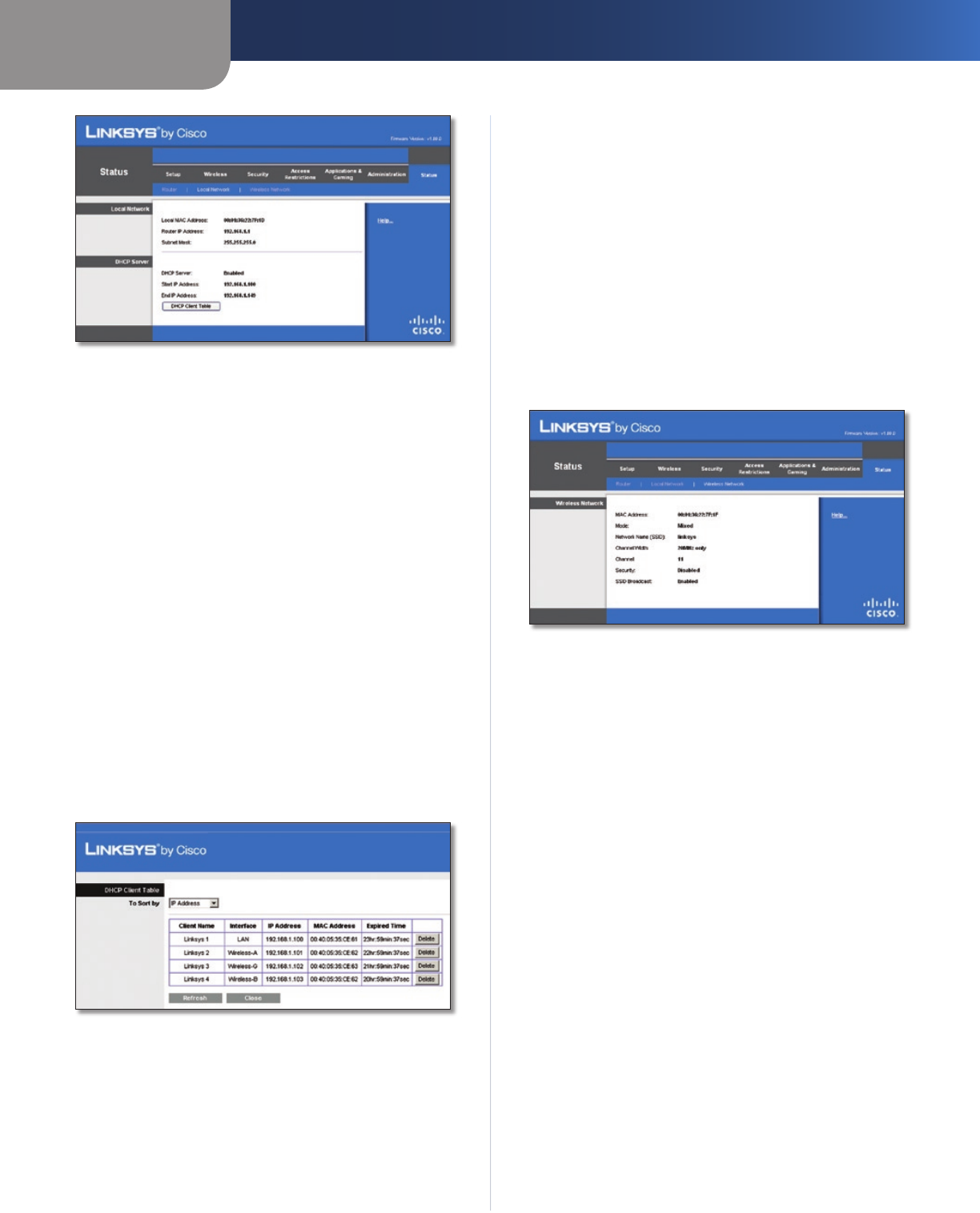
Chapter 3
Advanced Configuration
28
Dual-Band Wireless-N Gigabit Router
Status > Local Network
Local Network
Local MAC Address The MAC address of the Router's
local, wired interface is displayed here.
Router IP Address This shows the Router's IP address, as
it appears on your local network.
Subnet Mask This shows the Subnet Mask of the Router.
DHCP Server
DHCP Server The status of the Router's DHCP server
function is displayed here.
Start IP Address For the range of IP addresses used by
devices on your local network, the starting IP address is
shown here.
End IP Address For the range of IP addresses used by
devices on your local network, the ending IP address is
shown here.
DHCP Clients Table Click this button to view a list of PCs
that are using the Router as a DHCP server.
DHCP Clients Table
DHCP Client Table
The DHCP Client Table lists computers and other
devices that have been assigned IP addresses by the
Router. The list can be sorted by Client Name, Interface,
IP Address, MAC Address and Expired Time (how much
time is left for the current IP address). To remove a
DHCP client, click Delete. To retrieve the most up-to-
date information, click Refresh. To exit this screen and
return to the Local Network screen, click Close.
Status > Wireless Network
The Wireless Network screen displays information about
your wireless network.
Status > Wireless
Wireless Network
MAC Address The MAC address of the Router's local,
wireless interface is displayed here.
Mode Displayed here is the wireless mode used by the
network.
Network Name (SSID) Displayed here is the name of the
wireless network, which is also called the SSID.
Channel Width Shown here is the Radio Band setting
selected on the Basic Wireless Settings screen.
Channel Shown here is the Channel setting selected on
the Basic Wireless Settings screen.
Security Displayed here is the wireless security method
used by the Router.
SSID Broadcast Displayed here is the status of the SSID
Broadcast feature.



